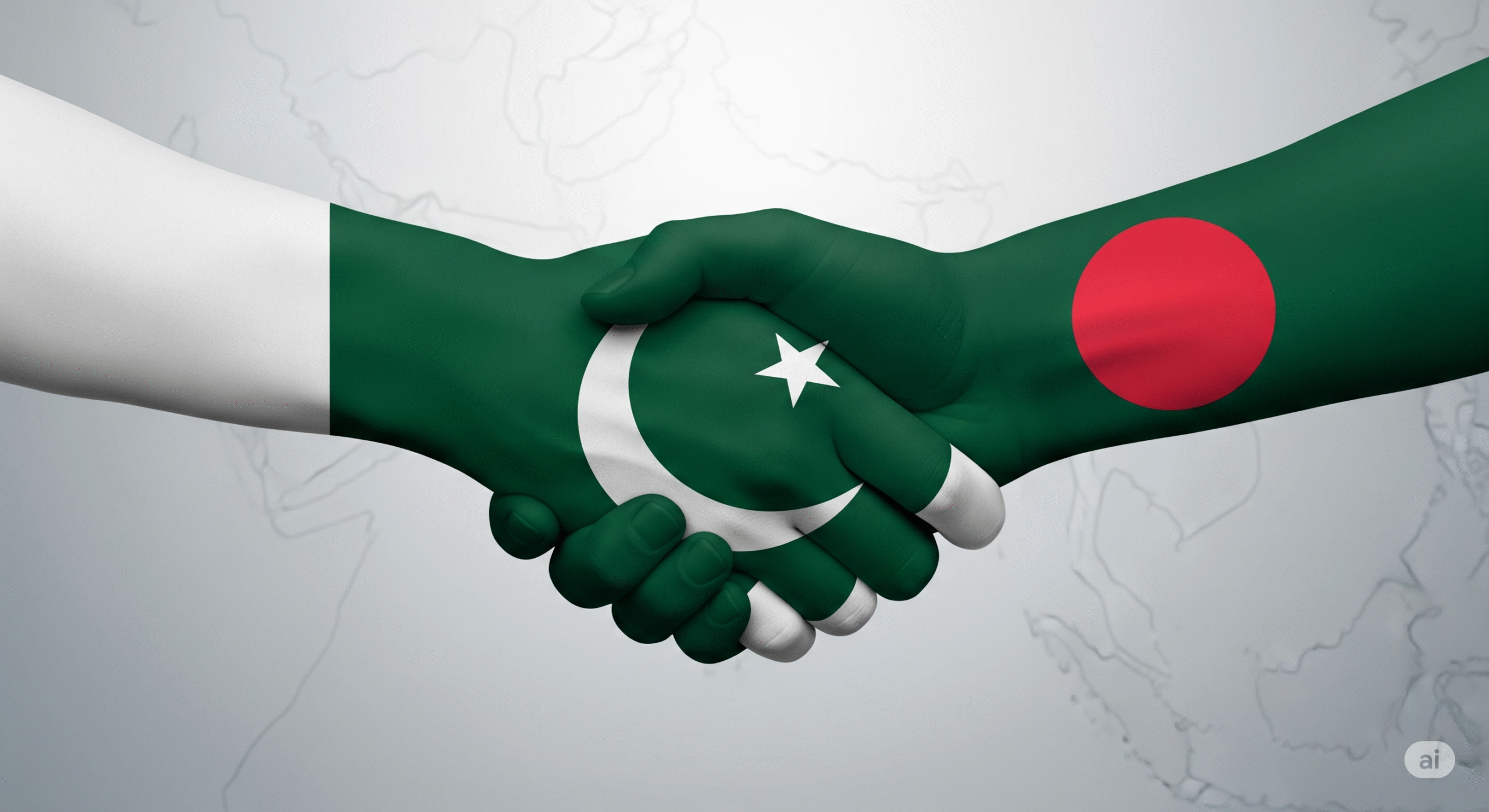Ishaq Dar in Dhaka: Pakistan Ready for a Fresh Start with Bangladesh

Dhaka, Islam Abad:- During the recent visit of Pakistan’s Deputy Prime Minister and Foreign Minister, Ishaq Dar, to Dhaka, demands for an apology over the events of 1971 have once again been raised. Leaders from various political parties, including Bangladesh’s Foreign Affairs Adviser Touhid Hossain, have called on Pakistan to apologize for the events of 1971 and to resolve pending issues related to the fair distribution of resources from the time of independence.
In a statement, the Bangladeshi Ministry of Foreign Affairs said that during the meeting with Ishaq Dar, they discussed matters including a “formal apology from Pakistan for the crimes committed in 1971, the division of assets, and the transfer of foreign aid designated for the victims of the 1970 cyclone.”
When asked about the demand for an apology, Pakistan’s Foreign Minister Ishaq Dar told the media that the matter of an apology between Pakistan and Bangladesh had already been settled on two previous occasions. He stated that former Prime Minister Zulfiqar Ali Bhutto in 1974 and then President General Pervez Musharraf in 2002 had resolved the issue during their visits to Bangladesh.
Ishaq Dar added, “I believe that after this matter was settled between brothers, Islam also instructs us to keep our hearts clean. Therefore, we should move forward and work together because our future is bright.” However, in response to a question during a press conference on the same topic, Bangladesh’s Foreign Affairs Adviser Touhid Hossain stated, “I certainly do not agree with him (Ishaq Dar).”
In February 1974, the Islamic Summit Conference was to be held in Lahore, and leaders from all Islamic countries were invited. At that time, Pakistan had not yet recognized Bangladesh. However, the then-Prime Minister Zulfiqar Ali Bhutto recognized Bangladesh as a separate state before inviting Sheikh Mujibur Rahman to attend the conference. Despite Bangladesh’s demands, no apology was offered for the events of 1971.
Bangladesh later threatened to prosecute 195 Pakistani prisoners of war for war crimes committed during the 1971 war. In exchange for withdrawing this decision, Bangladesh reiterated its demand for an apology for the alleged unlawful acts.
Finally, in April 1974, an agreement was reached between the foreign ministers of Pakistan, Bangladesh, and India. The agreement stated that “if war crimes were committed in East Pakistan, the Government of Pakistan expresses its condemnation and regret.” The accord also noted that “Prime Minister Bhutto appeals to the people of Bangladesh to forgive the mistakes and move forward, forgetting the past.”
After this, in 2002, the then-President of Pakistan, General Pervez Musharraf, visited Bangladesh and again expressed his regret. However, despite Bangladesh’s repeated requests for its share of the undivided Pakistan’s government assets, no Pakistani government has addressed the matter. Even after repeated meetings between the then-Prime Minister of Bangladesh, Sheikh Mujibur Rahman, and Mr. Bhutto in 1974 to resolve these issues, no consensus was reached.
So, despite the ‘apologies’ from Zulfiqar Ali Bhutto and Pervez Musharraf, why does Bangladesh continue to demand an apology? To answer this question, BBC previously spoke with several figures from Pakistan and Bangladesh. Senior Bangladeshi historian Asfhan Chodhury told the BBC that it is understood in Bangladesh that the tri-country agreement was essentially between Pakistan and India, as they wanted to move past the situation, and Bangladesh was compelled to join the accord.
He says, “The New York Times report at the time described it as a compromise and a ‘face-saving way out.’ This is not satisfying for the people of Bangladesh. More than fifty years later, it remains a major issue. I don’t think the apology that was given at the time has any benefit now. Even then, the public was highly critical of whether it was a real apology or not.”
Ashraf Qureshi, who previously served as Pakistan’s High Commissioner in Dhaka, told the BBC that during his service, he often referred to the 1974 agreement. He said that during the negotiations for the repatriation of the prisoners, the agreement clearly stated that the Prime Minister had promised to visit Bangladesh and requested the people of Bangladesh to overlook the past. According to Ashraf Qureshi, “The Foreign Minister of Bangladesh signed this agreement and wrote that the Prime Minister of Bangladesh has also given a message to the people, saying that the people of Bangladesh know how to forgive, and as a gesture of clemency, Bangladesh will send back the 195 prisoners.”
The demands for an apology over the 1971 events during Ishaq Dar’s visit to Bangladesh are also a topic of discussion on social media. A user named Tasin Mehdi wrote that until Pakistan offers a clear apology for the events of 1971, no government in Bangladesh should normalize relations with it.
Another user, Muhammad Irshad, wrote that this is the “only issue that is a hindrance in the relations between the two countries.” An other user wrote that both countries should apologize to each other at a public level, adding that the people of both nations had nothing to do with the events of ’71 and they like each other.

